
***RECOMMENDED*** For the casual audience member attending an operatic performance, it is usually not necessary to know much about a production's narrative beforehand. That's the job of the librettist. If you have a good librettist, the story unfolds in real-time, it beautifully complements the rhythm of the composer's score and it is easily understood. However, if the source material happens to be Shakespeare or Greek tragedy, perhaps, you may want to do a little bit of research ahead of time. No need to dig out your old Edith Hamilton edition of "Mythology" however, in order to appreciate the season-opener "Medea" at Lyric Opera of Chicago. Just peruse the synopsis in your program before the curtain rises. The first paragraph will grant you vital information that will fill in memory gaps to Medea's backstory while also helping to answer questions that have major significance on what is her motivation for ultimately devising such a sinister plan. 3 SPOTLIGHTS
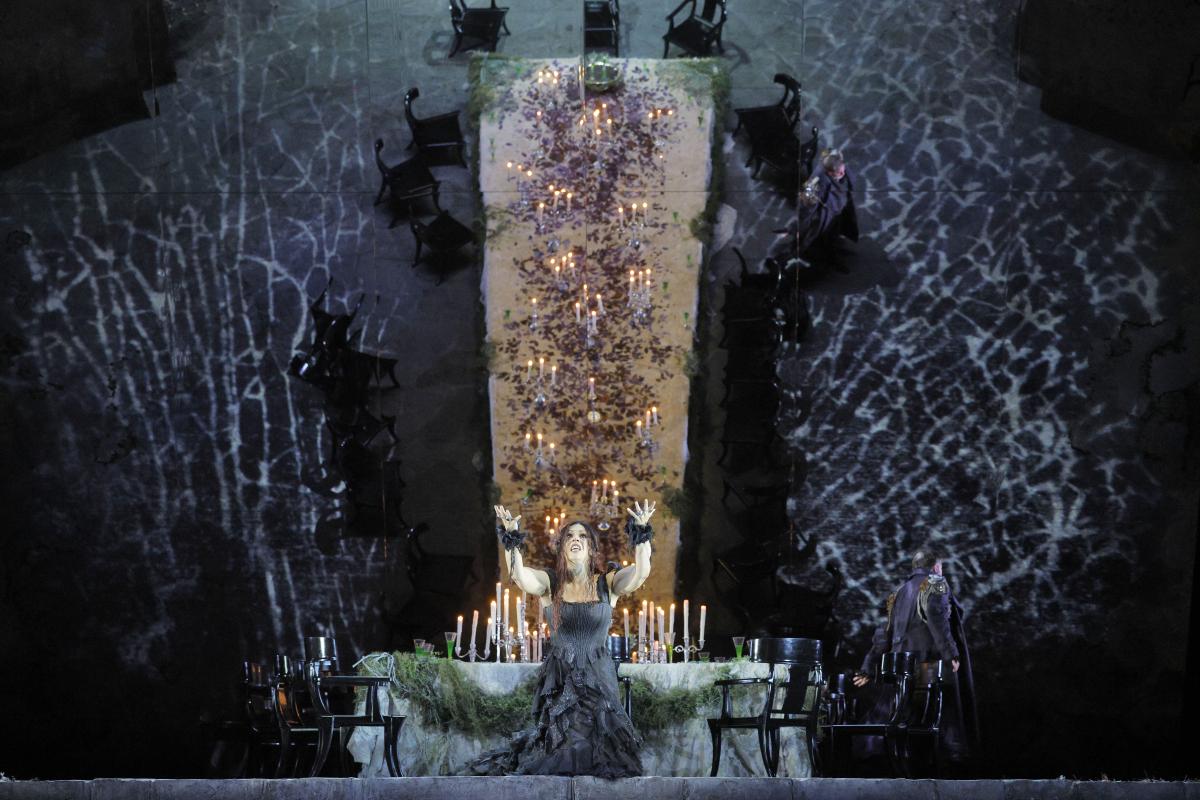
Sondra Radvanovsky as Medea. Photo by Cory Weaver
Surprisingly, Luigi Cherubini's 1797 opera "Medea" is, at long last, making its Lyric premiere. Hard to believe that after 70+ years, this work has never graced Lyric's stage. Part of the reason why this work may have slipped out of popularity may be due to the fact that it is extremely challenging to find the correct soprano to cast in the title role. Not helping matters is this libretto by Francois-Benoit Hoffman. Yes, Hoffman did base his libretto on Euripides' own famous version of the story -- as if "inspired" by Euripides -- but he too closely follows Pierre Corneille's play "Medee" in tone and structure. The result can feel a bit lop-sided. Act I is heavily weighted with extraneous exposition and plenty of quandaries which can bog down the proceedings, only to be swept up into an increasingly intense inferno by the final act.
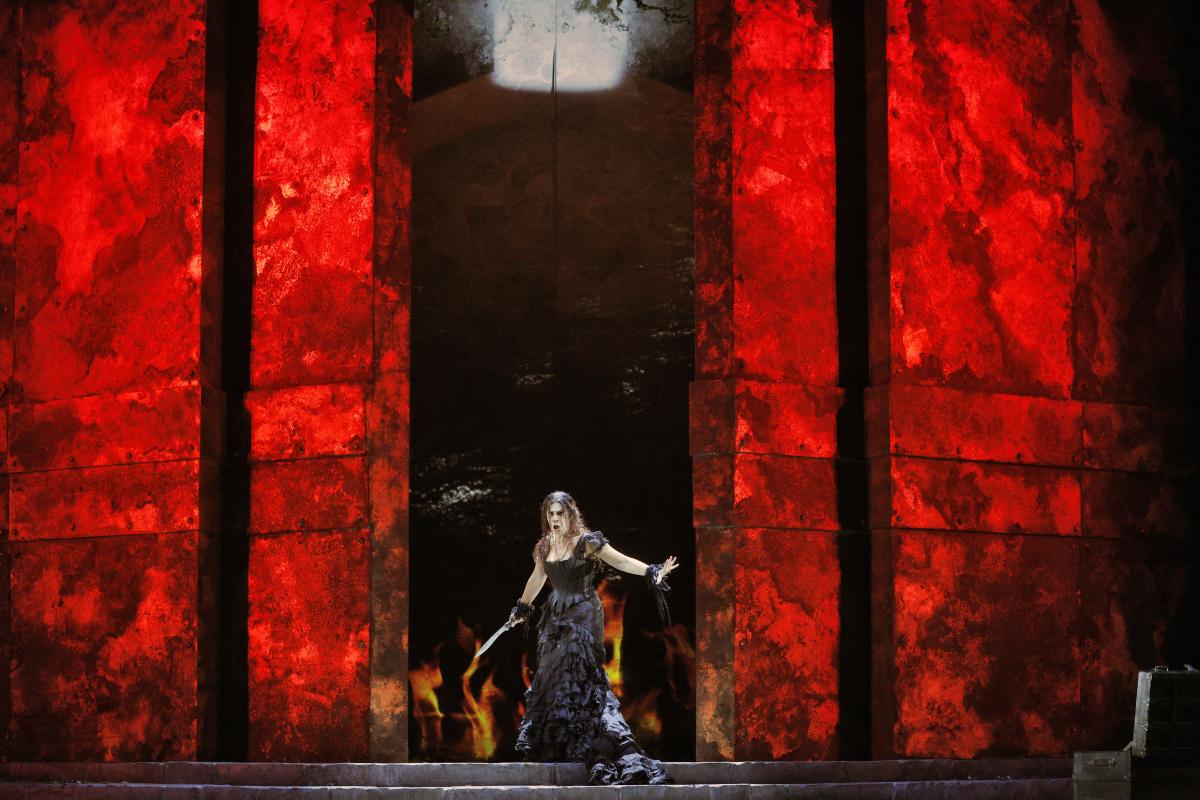
Sondra Radvanovsky as Medea. Photo by Cory Weaver
Lyric's Music Director, Enrique Mazzola, confidently guides the orchestra through Cherubini's pleasantly varied score. Mazzola does wonders with the lengthy overture, finding merriment and joy in the most unlikely of places. Both animated and absorbed, Mazzola has great control over his entire orchestra, particularly his command over hushing the strings section during the most tender moments.
If you have ever been fortunate enough to hear Sondra Radvanovsky perform live, you know that vocally she is more than capable of handling the technical challenges that this role requires. Lyric audiences have adored her for over two decades and been able to enjoy nine of her roles here since 2002. To say that Radvanovsky is mesmerizing in the role of Medea actually seems like an understatement. After all, don't forget that Medea is a sorceress. Radvanovsky easily proves that she has the dramatic prowess to make her Medea a memorable one. If you have never seen Radvanovsky before, this is the perfect chance to see just how phenomenal of an artist she is.
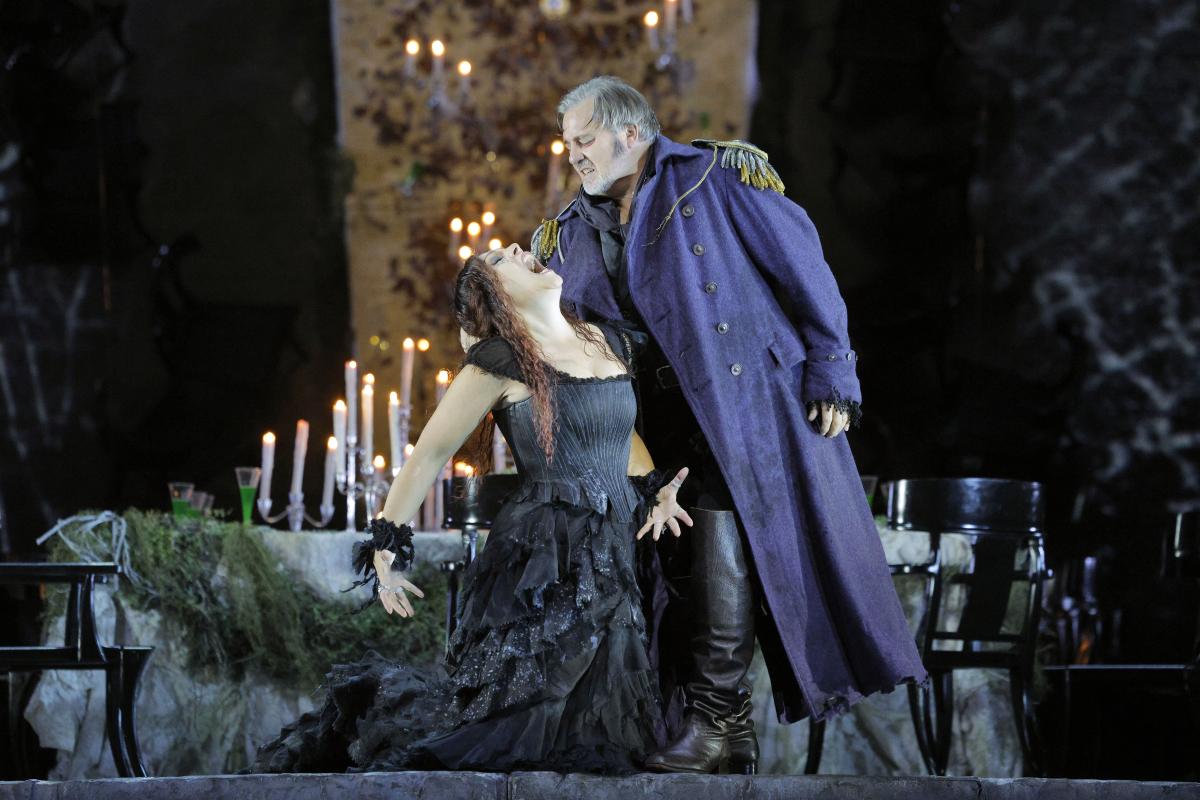
Sondra Radvanovsky as Medea and Matthew Polenzani as Giasone. Photo by Cory Weaver
It has been eight years since Lyric Opera audiences have seen another highly-cherished performer on their stage in a fully-mounted production. Tenor Matthew Polenzani, a proud Ryan Opera Center alumnus, returns in the role of Jason, husband to Medea and father of their two young sons. Polenzani brings great restraint to the role and is cold and steely, in marked contrast to Radvanovsky's fiery and blazing performance.
Mezzo-soprano Zoie Reams is achingly effective in the role of Neris, who is a confidant to Medea. Her interactions with Medea during Act II are most memorable. Also remarkable is bass-baritone Alfred Walker as Creon, the king of ancient Corinth. Walker possesses both the dignity of nobility as well as the compassion and humanity of a ruler whose very power could alter Medea's fate.

Zoie Reams as Neris and the Company of Medea. Photo by Cory Weaver
Sir David McVicar directed this production of "Medea" and it is much more similar to his "Electra" (Lyric season 2018/2019) than his excruciatingly dark (as in, poorly lit) "Macbeth," which opened their 2021/2022 season. His "Medea" has magically transformed from a classical Greek tragedy to a modern psychological drama of the highest order. McVicar also acted here as set designer, and perhaps no element of his set design which dominates Lyric's stage is more discussed than the giant mirror upstage. Installed at a 60 degree angle to the stage's floor, this wall of burnished metal with flecks of gilded tarnish offers an interesting perspective during the larger crowd scenes and processions which take place in the first two acts. However, by the opera's thrilling conclusion outside of the temple, the reflection of Medea with her two young sons on either side of her is the image that will be burned into most people's memory.
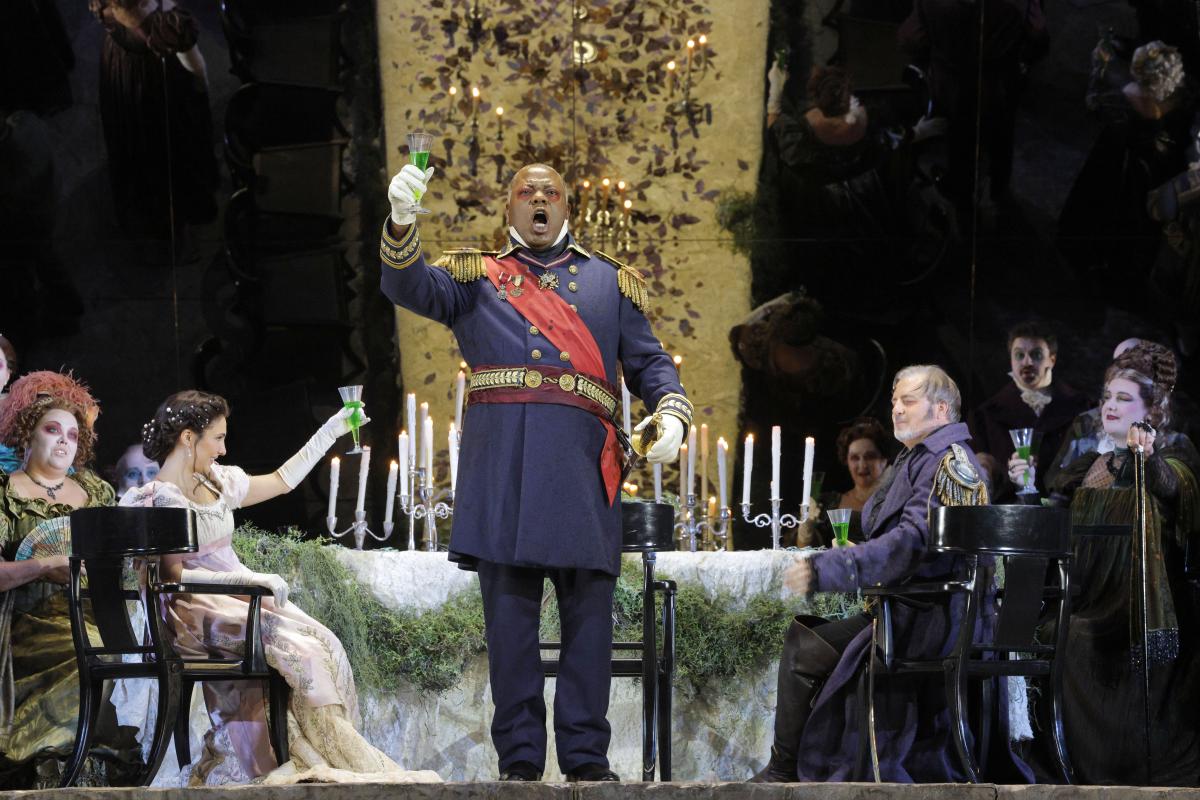
Elena Villalón as Glauce, Alfred Walker as Creonte, Matthew Polenzani as Giasone, and the Company of Medea. Photo by Cory Weaver
_______________________________________________________________
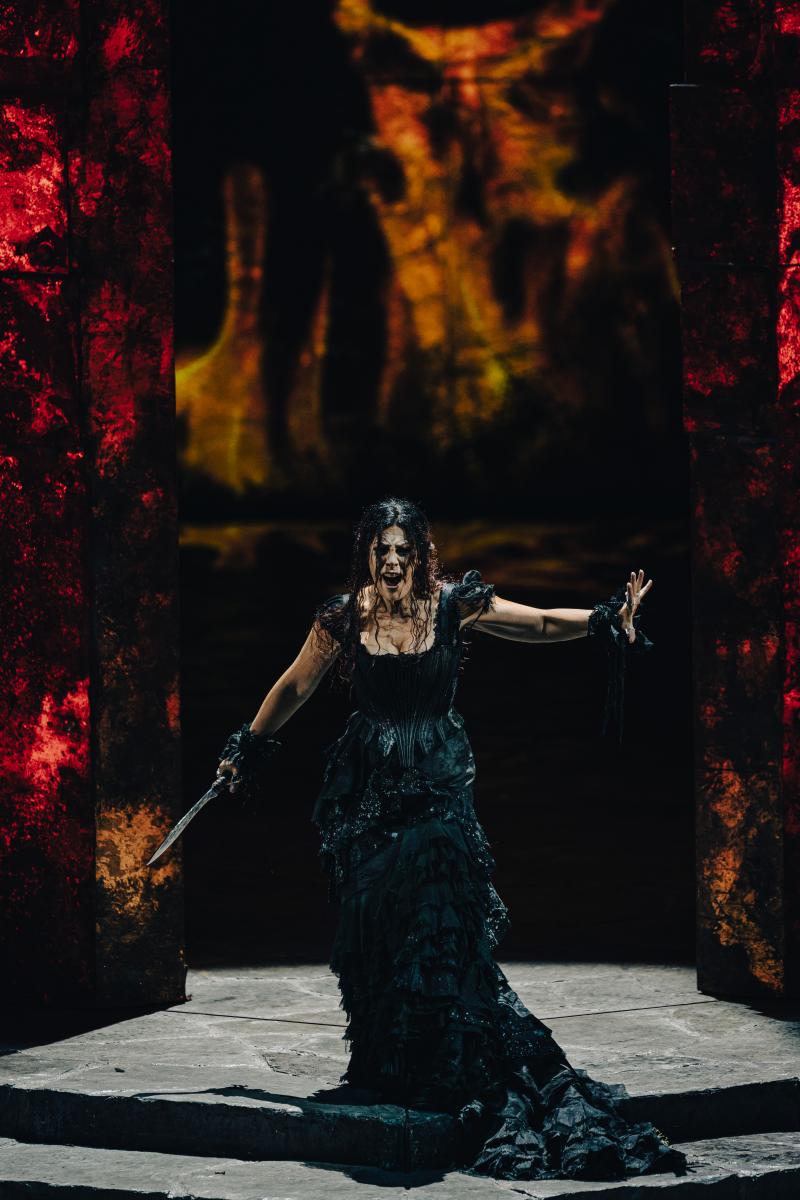
"Medea" continues through October 26, 2025
Lyric Opera of Chicago is located at 20 North Wacker Drive, Chicago, IL
Remaining performances are:
Thursday, October 23 at 2:00 PM
Sunday, October 26 at 2:00 PM
Tickets: Please visit www.lyricopera.org/createyourown or call 312-827-5600
Running time is approximately 2 hours and 45 minutes with one intermission
